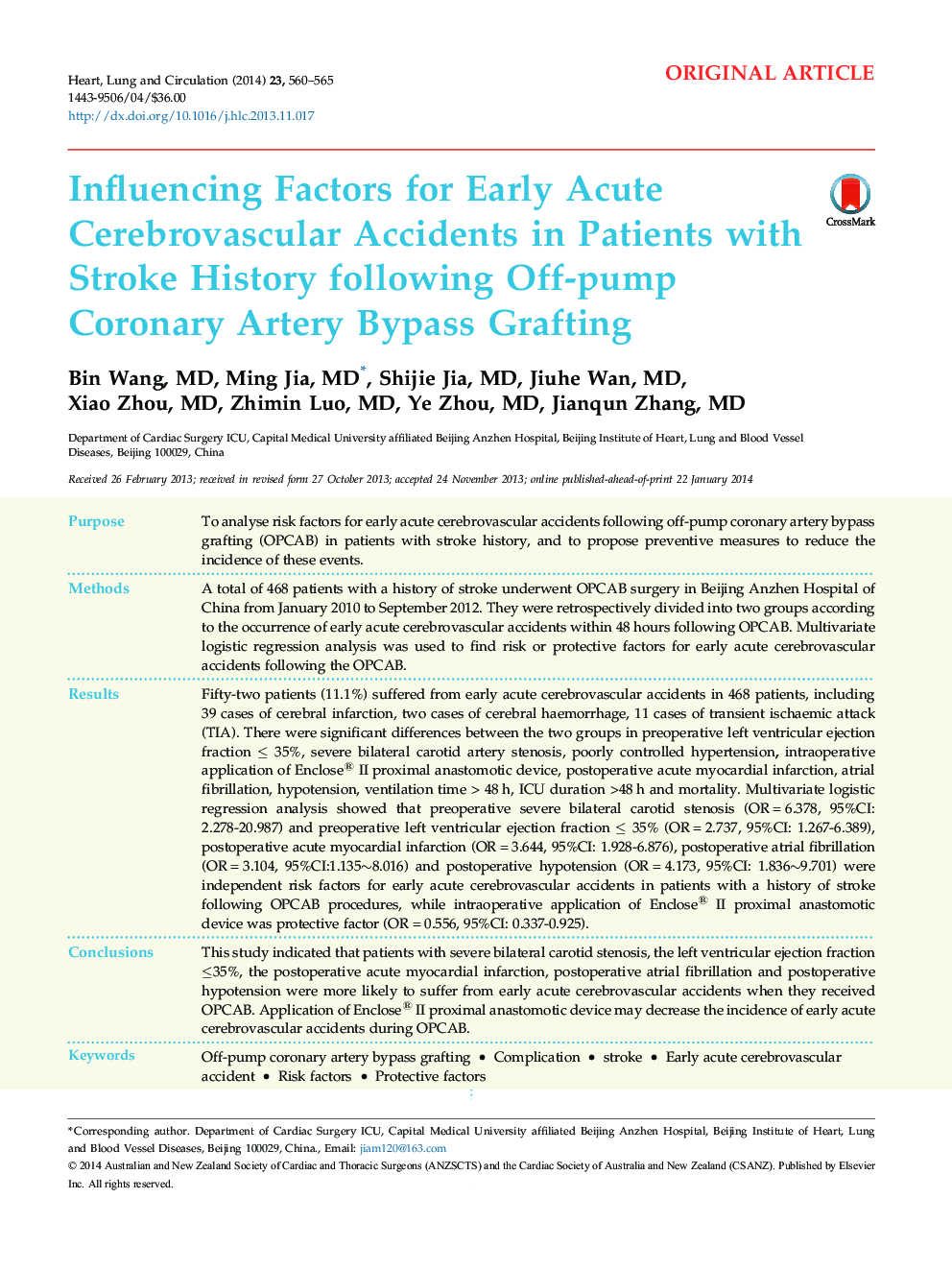| کد مقاله | کد نشریه | سال انتشار | مقاله انگلیسی | نسخه تمام متن |
|---|---|---|---|---|
| 2918045 | 1175682 | 2014 | 6 صفحه PDF | دانلود رایگان |
PurposeTo analyse risk factors for early acute cerebrovascular accidents following off-pump coronary artery bypass grafting (OPCAB) in patients with stroke history, and to propose preventive measures to reduce the incidence of these events.MethodsA total of 468 patients with a history of stroke underwent OPCAB surgery in Beijing Anzhen Hospital of China from January 2010 to September 2012. They were retrospectively divided into two groups according to the occurrence of early acute cerebrovascular accidents within 48 hours following OPCAB. Multivariate logistic regression analysis was used to find risk or protective factors for early acute cerebrovascular accidents following the OPCAB.ResultsFifty-two patients (11.1%) suffered from early acute cerebrovascular accidents in 468 patients, including 39 cases of cerebral infarction, two cases of cerebral haemorrhage, 11 cases of transient ischaemic attack (TIA). There were significant differences between the two groups in preoperative left ventricular ejection fraction ≤ 35%, severe bilateral carotid artery stenosis, poorly controlled hypertension, intraoperative application of Enclose® II proximal anastomotic device, postoperative acute myocardial infarction, atrial fibrillation, hypotension, ventilation time > 48 h, ICU duration >48 h and mortality. Multivariate logistic regression analysis showed that preoperative severe bilateral carotid stenosis (OR = 6.378, 95%CI: 2.278-20.987) and preoperative left ventricular ejection fraction ≤ 35% (OR = 2.737, 95%CI: 1.267-6.389), postoperative acute myocardial infarction (OR = 3.644, 95%CI: 1.928-6.876), postoperative atrial fibrillation (OR = 3.104, 95%CI:1.135∼8.016) and postoperative hypotension (OR = 4.173, 95%CI: 1.836∼9.701) were independent risk factors for early acute cerebrovascular accidents in patients with a history of stroke following OPCAB procedures, while intraoperative application of Enclose® II proximal anastomotic device was protective factor (OR = 0.556, 95%CI: 0.337-0.925).ConclusionsThis study indicated that patients with severe bilateral carotid stenosis, the left ventricular ejection fraction ≤35%, the postoperative acute myocardial infarction, postoperative atrial fibrillation and postoperative hypotension were more likely to suffer from early acute cerebrovascular accidents when they received OPCAB. Application of Enclose® II proximal anastomotic device may decrease the incidence of early acute cerebrovascular accidents during OPCAB.
Journal: Heart, Lung and Circulation - Volume 23, Issue 6, June 2014, Pages 560–565
